Filter resources by type or complexity
All AdvancedArticleBeginnerIntermediateReportResearch PaperVideo
Google hired Timnit Gebru to be an outspoken critic of unethical AI. Then she was fired for it.
Timnit Gebru and Google Timnit Gebru is one of the most high-profile Black women in her field and a powerful voice in the new field of ethical AI, which seeks to identify issues around bias, fairness, and responsibility. Google hired her, then fired her. This article argues that leading AI ethics researchers, such as Timnit […]
Read More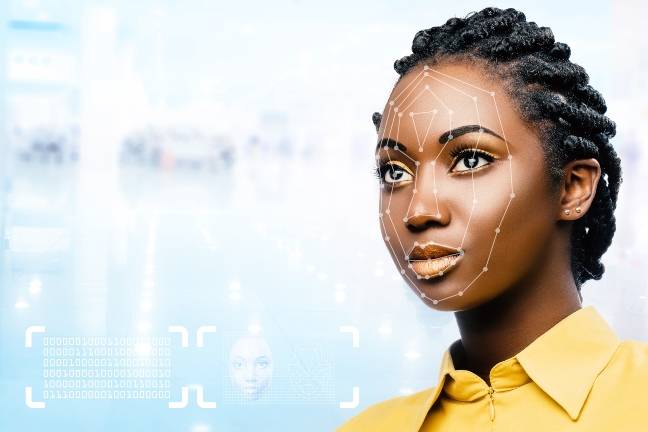
Face-scanning algorithm increasingly decides whether you deserve the job
HireVue claims it uses artificial intelligence to decide who’s best for a job. Outside experts call it “profoundly disturbing.” An article about HireVue’s “AI-driven assessments”. More than 100 employers now use the system, including Hilton and Unilever, and more than a million job seekers have been analysed.
Read More
Gender Shades: Intersectional Accuracy Disparities in Commercial Gender Classification
Gender Shades: Intersectional Accuracy Disparities in Commercial Gender Classification – MIT Media Lab Recent studies demonstrate that machine learning algorithms can discriminate based on classes like race and gender. In this work, we present an approach to e… ccording to this paper researchers from MIT and Stanford University, three commercially released facial-analysis programs from major […]
Read More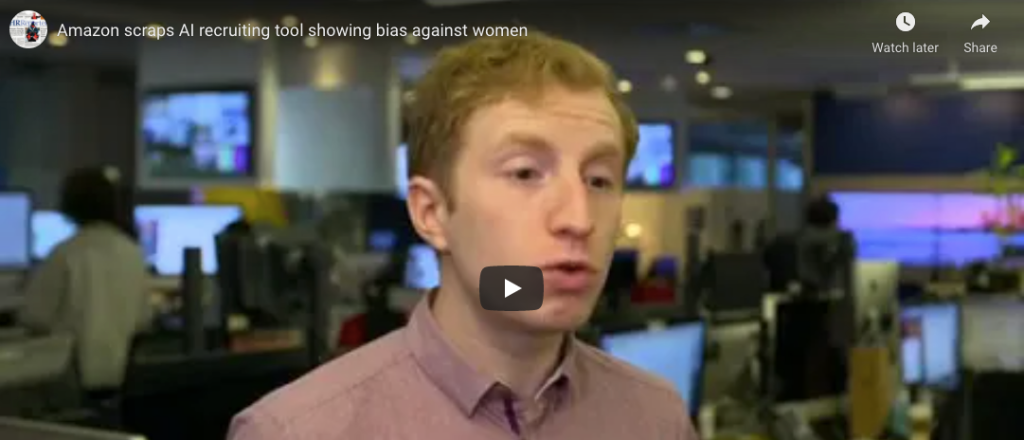
Amazon scraps AI recruiting tool showing bias against women
In 2018, Amazon’s use of AI for hiring was discovered to favour male job candidates, because its algorithms had been trained on 10 years’ worth of internal data that heavily skewed male. The algorithm was trained, in effect, to believe that male candidates were better than female candidates.
Read More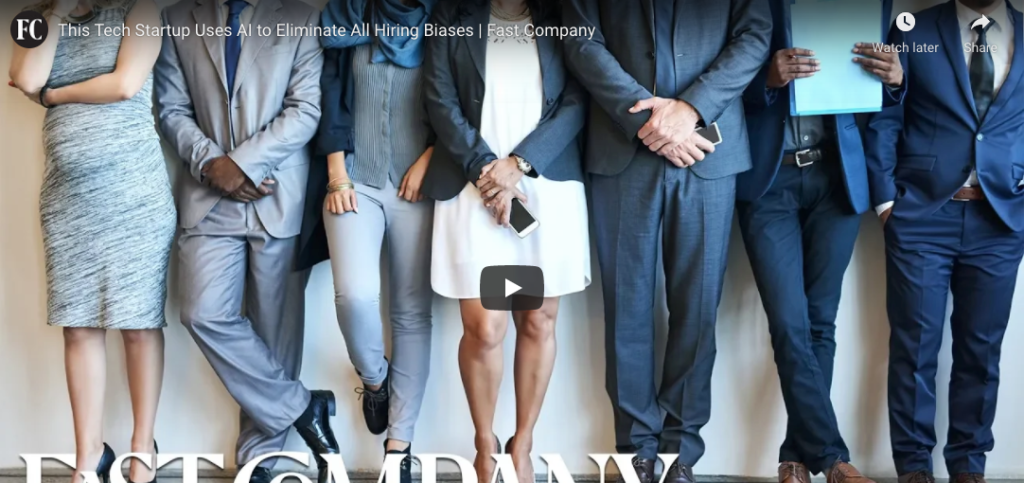
This tech startup uses AI to eliminate all hiring biases
This video argues that hiring is largely analogue and broken. This leads to major problems such as inefficiency, ineffectiveness (50% of first-year hires fail), poor candidate experience, and lack of diversity. The hiring process is plagued by gender bias, age bias, socioeconomic bias, and racial bias. Pymetrics intentionally audits algorithms to weed out unconscious human […]
Read More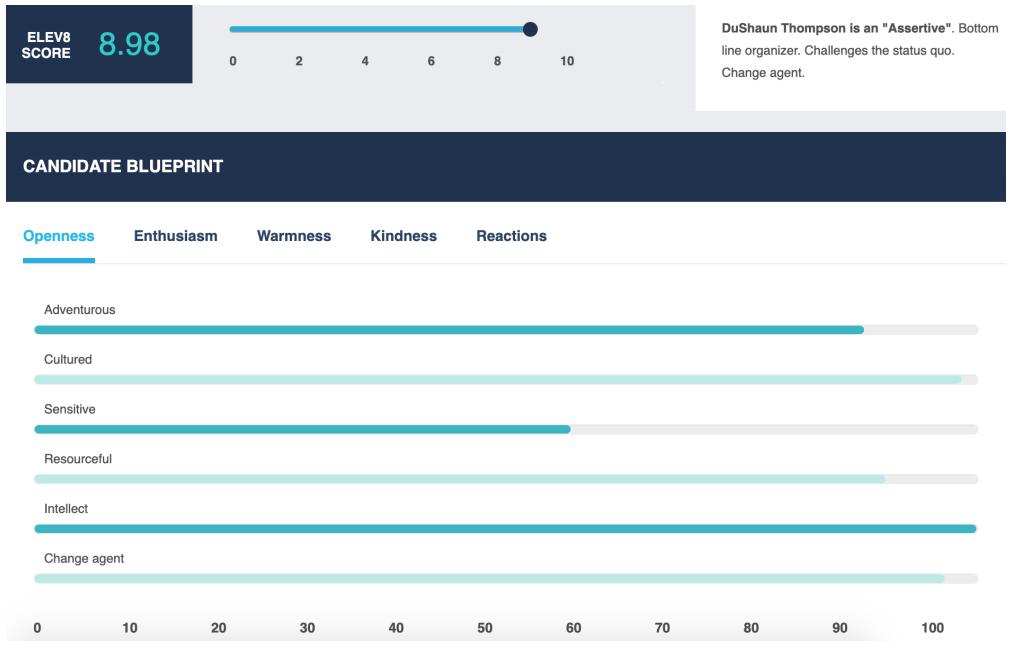
How to use AI hiring tools to reduce bias in recruiting
From machine learning tools that optimize job descriptions, to AI-powered psychological assessments of traits like fairness, here’s a look at the strengths – and pitfalls – of AI Commercial AI recruitment systems cannot always be trusted to be effective in doing what the vendors say they do. The technical capabilities this type of software offers […]
Read More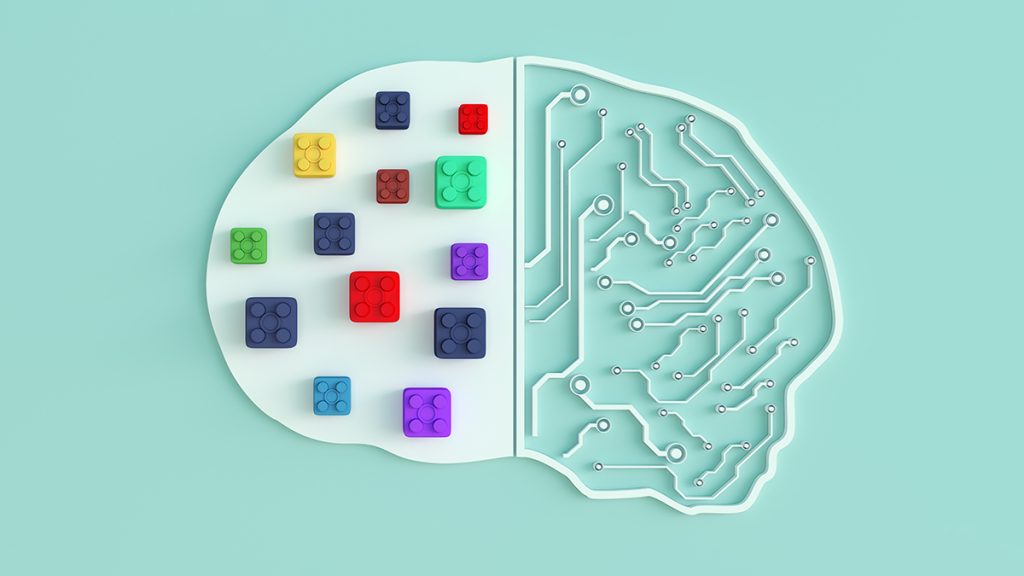
Using AI to eliminate bias from hiring
AI could eliminate unconscious bias and sort through candidates in a fair way. Many current AI tools for recruiting have flaws, but they can be addressed. The beauty of AI is that we can design it to meet certain beneficial specifications. A movement among AI practitioners like OpenAI and the Future of Life Institute is […]
Read More
Rights group files federal complaint against AI-hiring firm HireVue, citing ‘unfair and deceptive’ practices
AI is now being used to shortlist job applicants in the UK — let’s hope it’s not racist AI-based video interviewing software such as those made by HireVue are being used by companies for the first time in job interviews in the UK to shortlist the best job applicants. HireVue’s “AI-driven assessments,” which more than […]
Read More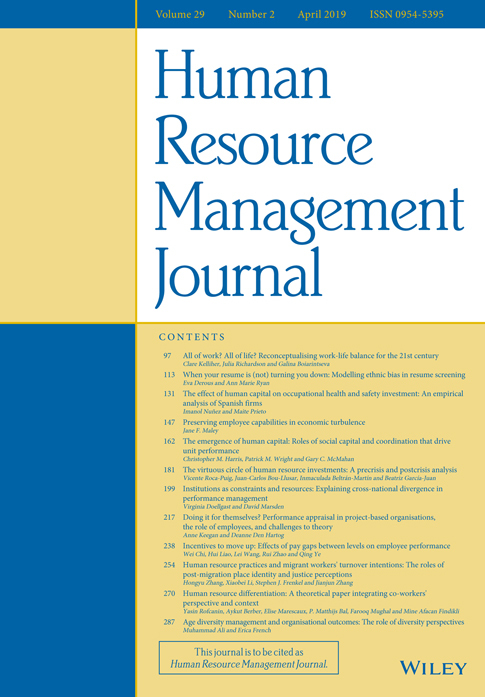
When your resume is (not) turning you down: Modelling ethnic bias in resume screening
Resume screening is the first hurdle applicants typically face when they apply for a job. Despite the many empirical studies showing bias at the resume‐screening stage, fairness at this funnelling st… CVs are worldwide one of the most frequently used screening tools. CV screening is also the first hurdle applicants typically face when they apply […]
Read More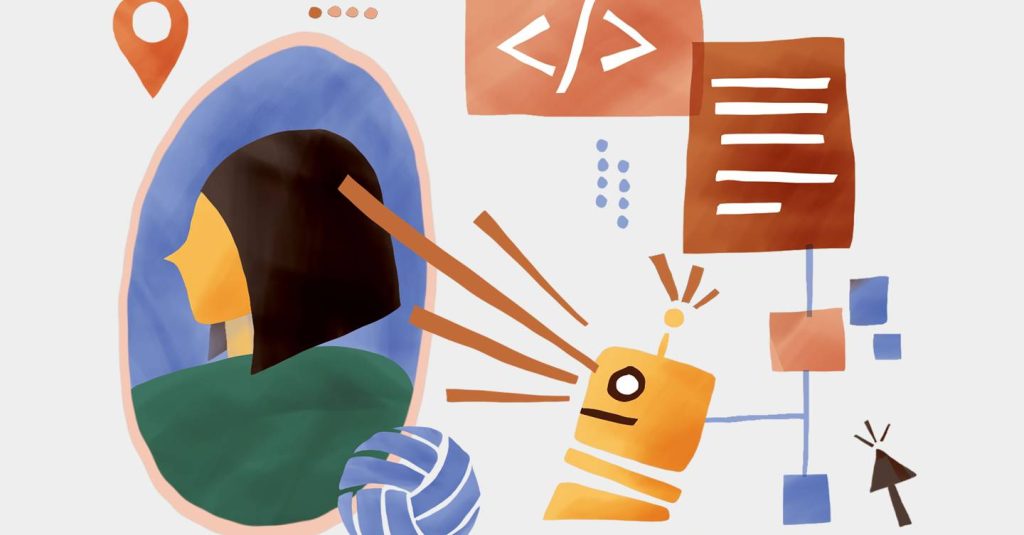
In the Covid-19 jobs market, biased AI is in charge of all the hiring
As millions of people flood the jobs market, companies are turning to biased and racist AI to sift through the avalanche of CVs As millions of people flood the jobs market, companies are turning to “biased and racist” AI to sift through the avalanche of CVs. This can lock certain groups out of employment and […]
Read More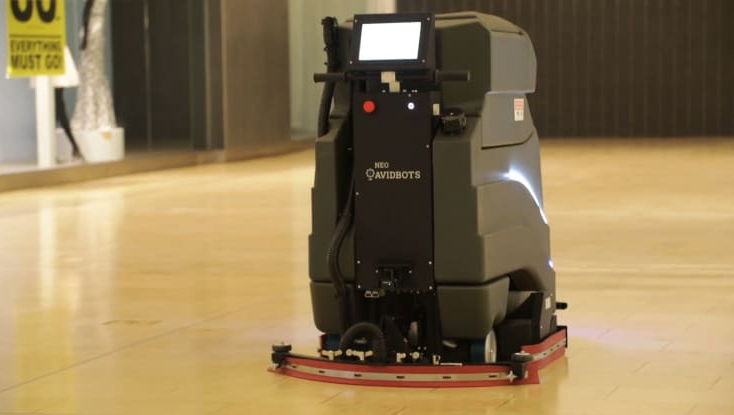
These robots handle dull and dangerous work humans do today — and can create new jobs
Avidbots, iUNU and 6 River Systems are among the start-ups on CNBC’s Upstart 100 list that are putting robots to work doing “dull, dirty and dangerous” tasks previously handled by humans. This article highlights the benefits of using AI and robots in certain work situations.
Read More
PwC facial recognition tool criticised for home working privacy invasion
Accounting giant PwC has come under fire for the development of a facial recognition tool that logs when employees are absent from their computer screens while they work from home. The technology, which is being developed specifically for financial institutions, recognises the faces of workers via t… PwC has come under fire for the development […]
Read More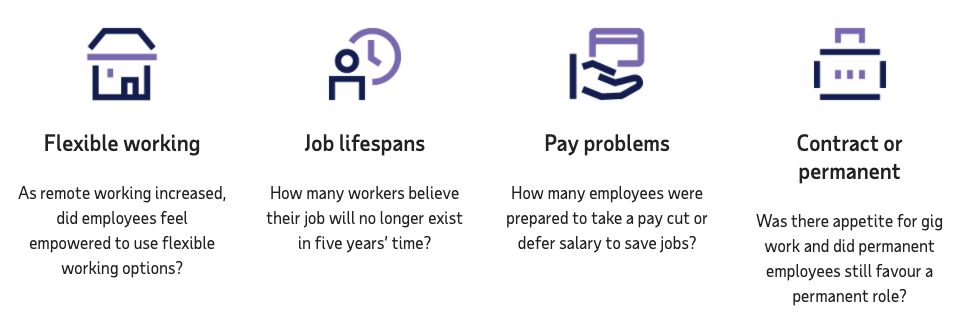
Workforce View 2020
High definition research into employee attitudes Comprehensive report on worker sentiment about the general outlook for the workplace and the long-term prospects for the jobs they’re holding. High levels of anxiety in workers due to automation.
Read More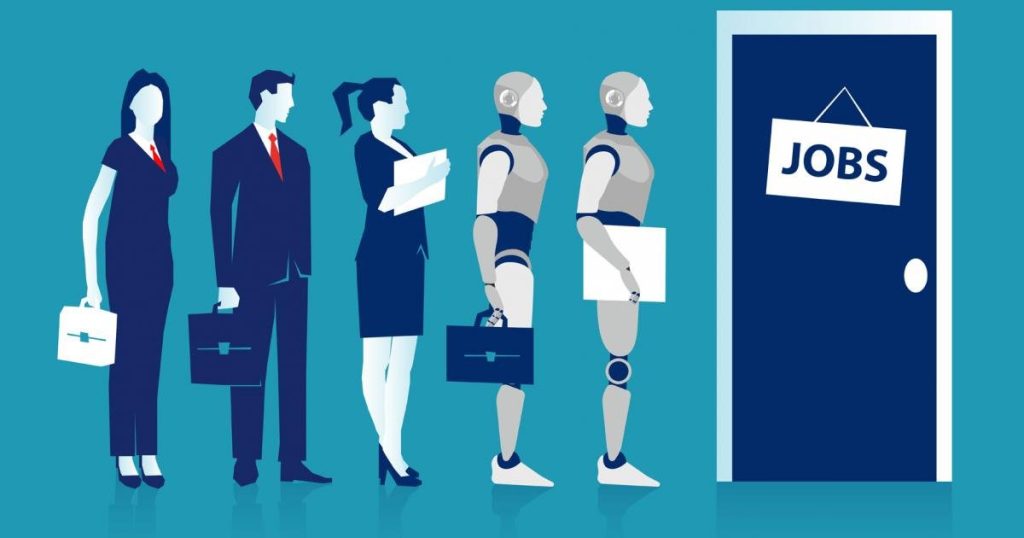
AI will impact future of jobs
Will AI eliminate more jobs than it creates? Experts weigh in on a hot topic that impacts almost every industry. The impact of AI on future jobs.
Read More
An AI expert told ’60 Minutes’ that AI could replace 40% of jobs
Artificial intelligence can replace repetitive tasks, but it doesn’t have the empathy to lead. View of an AI expert on human job loss. Provides an anecdotal view from an AI expert on what jobs are already being displaced with AI and automation.
Read More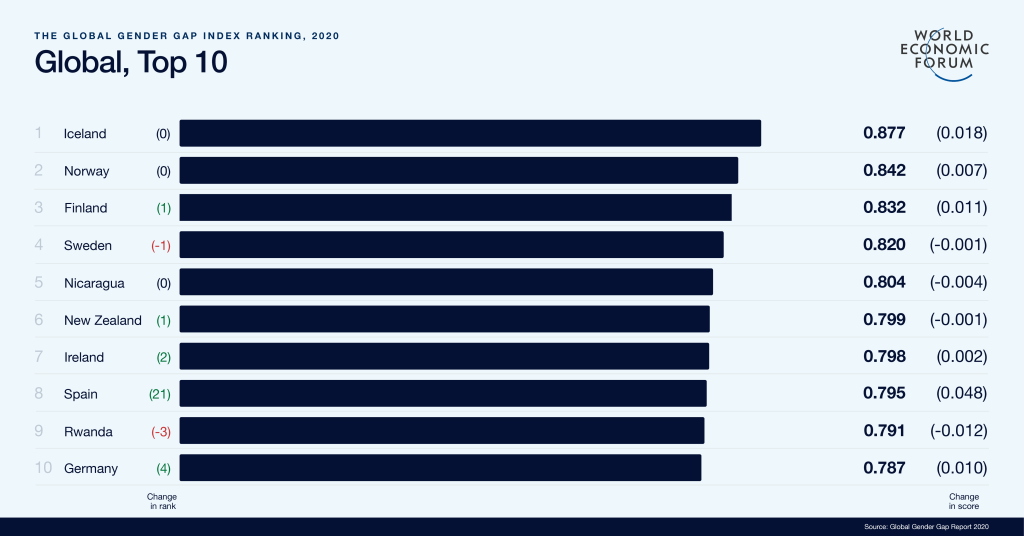
The Future of Jobs Report 2020
After years of growing income inequality, concerns about technology-driven displacement of jobs, and rising societal discord globally, the combined health and economic shocks of 2020 have put economies into freefall, disrupted labour markets and fully revealed the inadequacies of our social contract… Comprehensive report on the future of work, increase of automation/digitalisation of tasks and […]
Read More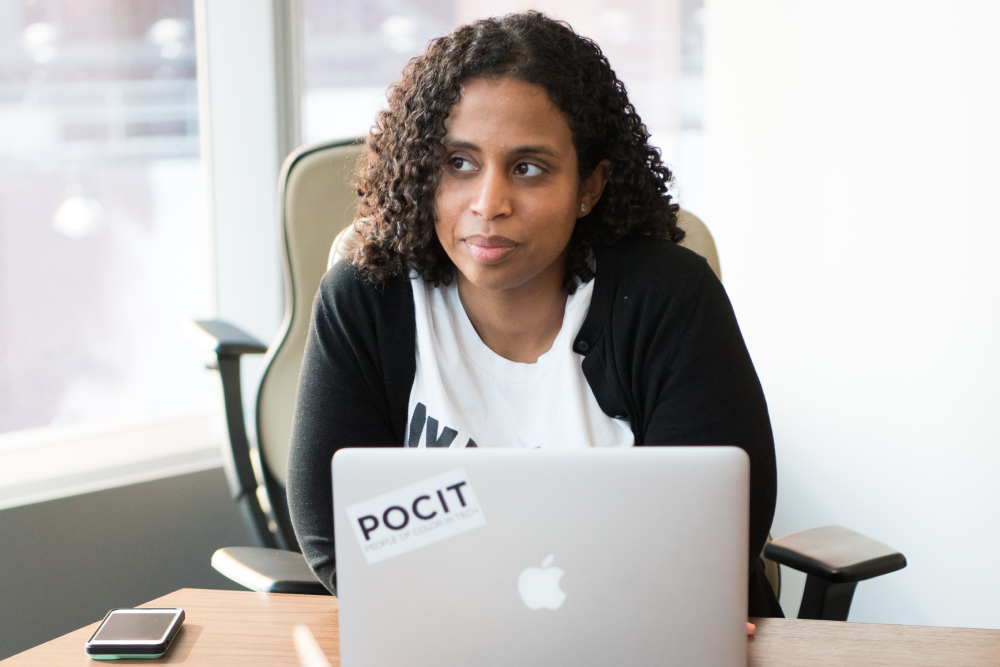
Lack of Diversity in AI Workforce
There is a very low representation of minority ethnic groups in the population of people employed in AI. This is a huge cause for concern since without a diverse set of AI creators, our AI models are bound to be prone to blind spots that bias against and ultimately harm minority ethnic groups.
Read More
Face-Scanning
Computer vision technology have a harder time recognising people with darker skin or from asian background. One main reason for this is that the datasets used by companies to train facial analysis software use mainly white examples and are not truly representative of diversity in society.
Read More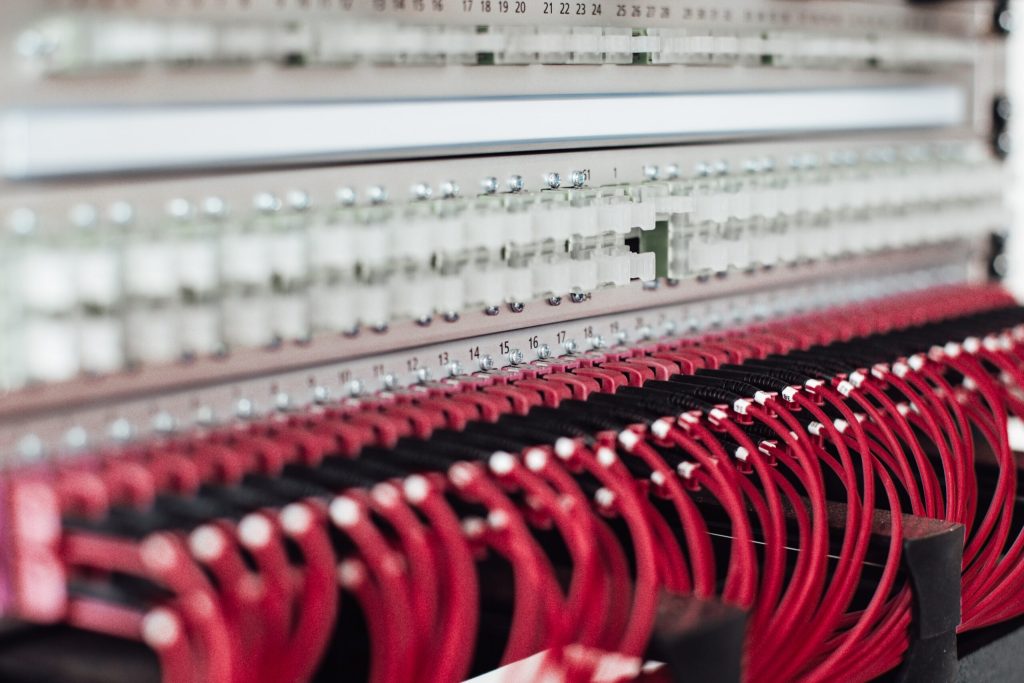
CV Screening
AI for recruiting is the application of artificial intelligence (such as machine learning, natural language processing, and sentiment analysis) to the recruitment function. It has the potential to mitigate, but is also likely to amplify bias.
Read More
Job Creation
AI has the potential to unlock new jobs – by allowing activities that are dangerous for humans or not even possible today, for example deep sea diving or space exploration.
Read More
Job Enhancement
AI-equipped robots will be able to perform dangerous or repetitive physical tasks, thus creating safer workplaces (e.g., wearable robots that support human strength may prevent musculoskeletal disorders).
Read More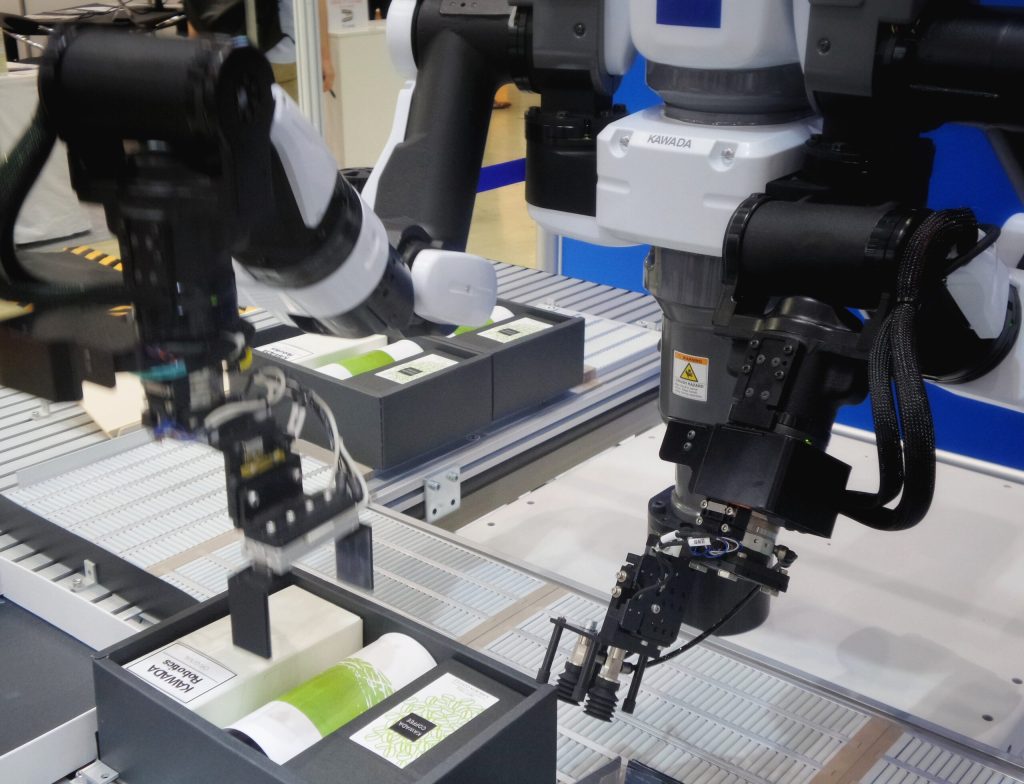
Job Replacement
AI-assisted automation of tasks will eliminate jobs in an uneven way across ethnic groups, further marginalising groups that are already at risk of lower pay and career advancement.
Read More